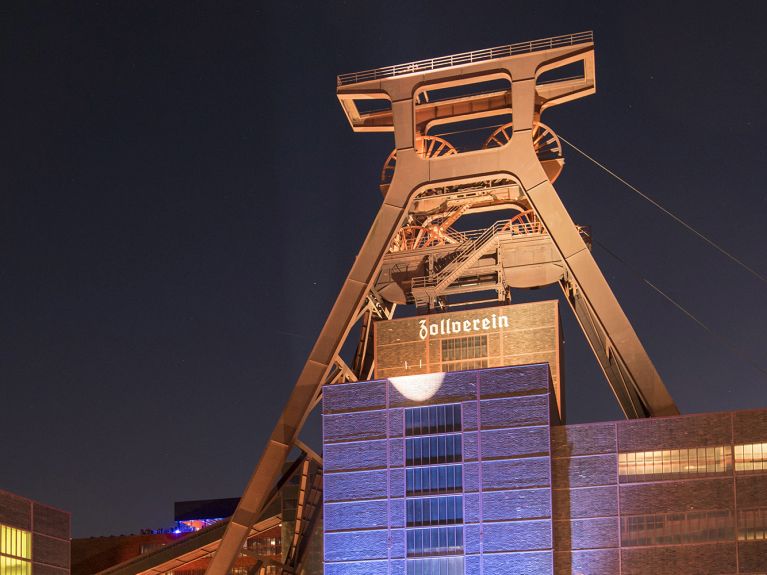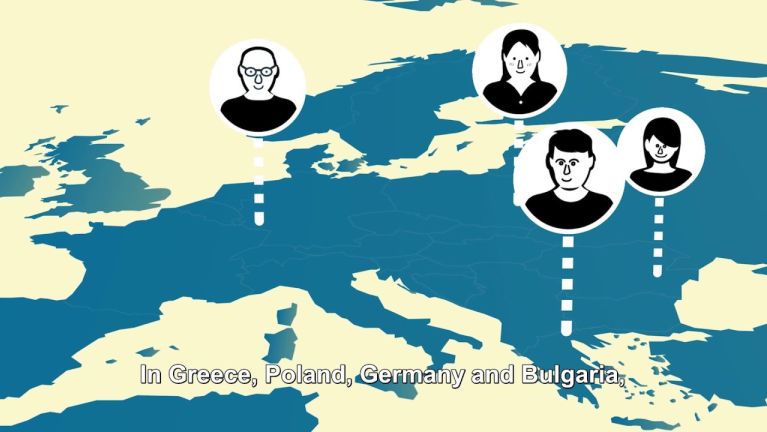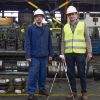Getting out of coal together
The coal phase-out is painful for many regions of Europe. In order to master it, they teamed up.

The EU wants to be climate neutral by 2050. Coal regions in particular are therefore facing a major challenge. For the transition to succeed, fresh ideas and good cooperation are needed.
What approaches are there to support structural change in coal regions?
In Germany, the Coal Commission has drawn up recommendations on how to mitigate the social and economic consequences of the coal phase-out. These include the relocation of federal agencies, research institutions and universities in coal regions in order to create new jobs. The Federal Government wants to support the switchover of German coal regions with structural aid of more than 40 billion euros. The EU Commission has also promised more money: as part of its "European Green Deal", it has set up the “Just Transition Fund”, which is to mobilize a total of 100 billion euros by 2027 for structural change in coal regions and also in regions with heavy industry. In addition, the one billion euros “Sustainable Europe Investment Plan” will help in financing green projects up to 2030. For example, the EU supports “Regions beyond Coal”.
Dieses YouTube-Video kann in einem neuen Tab abgespielt werden
YouTube öffnenThird party content
We use YouTube to embed content that may collect data about your activity. Please review the details and accept the service to see this content.
Open consent formWhat is “Regions beyond Coal”?
The project of the environmental organization WWF has been dealing with the question of how socially just structural change can succeed in Europe’s coal regions since 2017. The project, which is funded by the EU climate protection initiative of the Federal Environment Ministry (EUKI), concentrates on local changes. It expressly focuses on the participation of the affected employers, workers, trade unions and civil society initiatives. The aim is to support them in actively shaping structural change. Four countries with coal regions are taking part: Germany (Ruhr area and Lusatia), Bulgaria (southwestern Bulgaria), Greece (western Macedonia) and Poland (Silesia). The emphasis is on Eastern and Southern Europe, where the dependence on coal is often particularly high.
Coal regions must benefit from the transition to a climate-neutral economy.
Why exactly is it so difficult to exit?
The coal industry is often the most important employer in the regions concerned. “We can’t simply say to those affected that it’s necessary to phase out coal in their region without thinking about what comes next”, says Juliette de Grandpré of WWF Germany. “Coal regions have contributed to Europe's prosperity for decades. For just change, we have to make sure that they benefit from the transition to a climate-neutral economy.” The project is not just about the miners. “It’s also about their community”, says de Grandpré. “So it’s also about the baker from whom the miners buy their rolls.”
Dieses YouTube-Video kann in einem neuen Tab abgespielt werden
YouTube öffnenThird party content
We use YouTube to embed content that may collect data about your activity. Please review the details and accept the service to see this content.
Open consent formHow does the project approach the task?
“We first looked at the potential and then together worked out road maps – transition plans and approaches for sustainable businesses”, says de Grandpré. “And we brought the representatives of the regions together.” In Bulgaria, for example, everyone concerned sat around a table to discuss the upcoming structural change for the first time. “They didn’t know each other before and got talking only thanks to this.” The exchange between the four participating regions is also being strengthened. “Delegations from the respective countries visit the other regions to see how the project can be carried out and how not.” For instance, one of the study trips was to the Ruhr region, where the coal industry has already gone through the effects of structural change.
We have to make the right decisions about structural change.
The mayors of the individual cities are important decision-makers in the regions. How are they integrated into the approach?
To strengthen networking, the “Forum of Mayors on Just Transition” was founded, a group of mayors from regions affected by structural change. The Forum meets annually in one of the project regions, most recently in Weißwasser in the Lusatia. “At such conferences, we can discuss common challenges and new solution strategies”, says Torsten Pötzsch, Mayor of Weißwasser. “This saves valuable time when it comes to structural change.” In Pötzsch’s view, the fact that municipalities, cities and thus local people take part significantly increases the chances of success. The outlook beyond the European horizon is also positive. “This is the only way to make the right decisions in structural change so that our children and children’s children will have good prospects here.” The Forum also includes mayors from European coal regions who are not participants in the project. Sixty-one mayors have now signed a declaration calling for more support and at the same time pledging themselves to sign the Paris Agreement.




